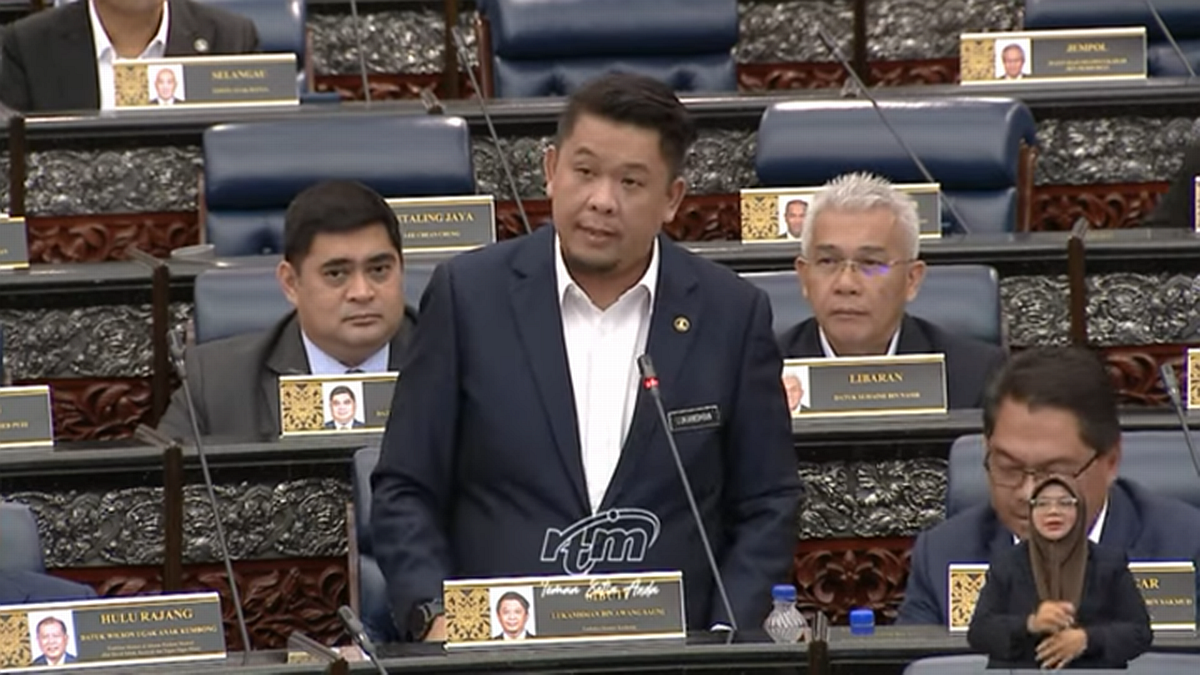KUALA LUMPUR, Feb 21 — The Ministry of Health (MOH) cannot stop government doctors from leaving the public health service in search of better prospects, said Deputy Health Minister Lukanisman Awang Sauni.
The Sibuti MP, in response to a question by Maran MP Ismail Abdul Muttalib in Parliament today, attributed the absconding of medical staff to other countries to better incentives and salaries than that offered by Malaysia.
However, Lukanisman was quick to defend the amount paid to medical staff by the MOH, stating that medical officers and dental officers receive a pay that is higher than other civil servants working at the management and professional levels.
“The MOH cannot prevent any medical staff, including medical officers or specialists, from resigning and emigrating to work abroad.
“The primary migrating factors for MOH medical officers and specialists who have resigned to work abroad are better incentives and pay offered by the health sectors outside the country, especially in developed countries,” Lukanisman told the Dewan Rakyat.
The second-term MP from Gabungan Parti Sarawak (GPS) said the starting pay for a UD41 medical officer amounts to RM5,197, with a yearly increase rate of RM225.
“Medical officers and dental officers are also allocated on-call allowances for work done outside regular working hours, with an overnight rate of RM200 to RM250 for active calls and RM85 to RM160 for passive calls.
“Medical officers and dental officers are eligible to make claims for passive call payments during the time they are on standby at home, even if they are not called to duty.
“Apart from on-call payments, medical officers who are on duty in outpatient treatment clinics after office hours in a hospital emergency department or a public health clinic which offers extended hours service are eligible to receive pay at a rate of RM80 an hour,” Lukanisman said.
Government doctors have pointed out that the RM220 payment for a 24-hour on-call on a weekend in Malaysia (compared to SG$480 in Singapore) is equivalent to merely RM9 per hour, besides complaining that certain heads of department reject claims for passive on-call allowances.
According to the Public Services Commission of Malaysia website, a UD41 grade medical officer is entitled to a minimum pay of RM2,947 and a maximum pay of RM9,656 with a yearly increase of RM225.
Although Lukanisman said that medical officers and dental officers are paid much higher than other civil servants, CodeBlue’s survey of 1,652 Malaysian government health care workers found that eight in 10 respondents felt that they were overworked and underpaid.
The deputy health minister also spoke about the MOH’s time-based promotion system, which allows medical officers to advance their careers quicker than having to wait for a higher position to become vacant.
“To ensure better career path improvement, medical officers and specialists are given faster promotions through time-based promotion.
“The creation of flexi positions from UD44 to UD56 also helps in ensuring that promotion placements are carried out more easily and faster — as officers have the opportunity to advance their careers through the promotion method without it being limited to available vacancies,” Lukanisman said.
Lukanisman added that the MOH also offers postgraduate medical specialty programmes where doctors are granted fully paid study leave and a federal scholarship (Hadiah Latihan Persekutuan or HLP) to pursue their specialisations.
“The MOH also offers Master of Medicine and Master of Dentistry specialist studies through the fully paid study leave facility with a federal scholarship (HLP) to permanent medical officers. For contract officers, specialist studies are offered through the parallel pathway specialist training.
“The MOH will continue to strive to improve existing incentives and existing facilities from time to time.
“The improvements implemented by the ministry, however, will not prevent officers from migrating and working elsewhere. The issue of migrating medical officers and specialists is a universal issue. This matter needs to be looked at widely and also occurs in all fields of work and not only in the medical field,” he said.
Lukanisman noted that a town hall session between Health Minister Dr Zaliha Mustafa and government doctors will be held tomorrow to address these concerns and others, including bullying of junior doctors.
On the issue of contract doctors, Lukanisman said as many as 4,333 contract doctors have been given permanent positions, as of December 31, 2022, while another 4,263 permanent posts are available to contract doctors this year.
Deputy Minister Proposes Meeting With Doctors Transferred To Sabah, Sarawak
In a follow-up question, Ismail asked the deputy health minister about the ministry’s plan to address the issue of doctors who are spouses but are forced to live apart due to being posted in different areas. The Maran MP held that this is yet another factor that causes doctors to leave the country or start their own practice.
Lukanisman stressed that Dr Zaliha and the ministry at large have placed emphasis on the mental wellbeing of MOH employees, and they have received many special requests when it comes to transfers.
“However, we will have to consider their (pasangan duka lara) interest to be placed together and the needs of the community for doctors, and consider which need is greater.
“And for [your] information, Mr Speaker, the minister will organise a town hall or engage in a special meeting with doctors tomorrow, and we will discuss issues that arise in that town hall,” the deputy health minister said.
Lukanisman also made a point to inform Parliament that he had suggested that the health minister along with members of the administration meet with these doctors who do not have adequate mental preparation for their transfers to Sabah and Sarawak.
“Doctors who have been transferred to Sabah and Sarawak also face the problem of inadequate mental preparation, and so, I have proposed to the ministry so that we, the minister and members of the administration can meet them before their transfer as a group to identify what steps we can take.”








